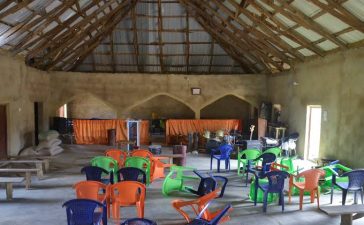SPE Africa Urges for Decarbonization Amid Nigeria’s Natural Gas Waste and Skills Shortages
The Society of Petroleum Engineers (SPE) is taking proactive steps to help guide the African petroleum industry toward decarbonization, acknowledging the global pressures of energy transition while also lamenting the staggering waste of natural gas resources in Nigeria and other parts of the continent.
During a recent visit to Nigeria, Engr. Riverson Oppong, the Africa Regional Director of SPE, expressed concerns about the massive inefficiencies in the Nigerian petroleum sector, where poor infrastructure and low industrial capacity result in the utilization of only a tiny fraction of produced gas.
The lack of capacity to properly process and use this vital resource, Engr. Oppong said, not only results in environmental damage but also represents a tremendous missed opportunity for industrial and economic growth.
Speaking at the Oilda Fireside Chat, a platform for energy industry leaders to discuss critical issues, Engr. Oppong noted that despite the global trend toward reducing reliance on fossil fuels, the demand for oil and gas remains resilient.
As the world pushes for net-zero emissions, he emphasized the importance of transitioning the petroleum industry towards more sustainable practices, particularly in Africa, where the potential for resource development remains immense.
“The goal now is not just to migrate demand away from fossil fuels, but to decarbonize the entire industry, to reduce carbon emissions, and to utilize technologies like carbon capture and storage (CCS) in a way that is both cost-effective and beneficial for the African energy landscape,” Engr. Oppong stated.
He also highlighted the troubling trend of skills flight from Africa, with a growing number of young professionals leaving the continent in search of better opportunities abroad.
According to Engr. Oppong, this exodus of talent is creating a significant skills shortage that could undermine the region’s ability to develop and maintain the expertise necessary for its industrial future.
“The mass migration of skilled labor is a direct consequence of leadership failure on the continent,” he lamented. “This talent drain not only depletes our workforce but also makes it more difficult to address the growing energy challenges Africa faces. We need to invest in the future of our workforce if we are to create sustainable, locally-driven solutions.”
In response to these challenges, SPE Africa is working to bridge the skills gap. The organization has already launched numerous virtual learning events across the continent, allowing professionals to exchange ideas and innovations that can shape the future of energy in Africa.
These programs, which have seen over 600 events hosted, are part of SPE Africa’s broader commitment to support local professionals and build a sustainable energy workforce.
Furthermore, Engr. Oppong stressed that African governments must act urgently to accelerate the industrialization of their economies. This involves harnessing the continent’s vast natural gas resources, which, despite being underutilized, remain a crucial energy source for driving economic development.
He argued that green energy technologies like solar and wind are still too vulnerable to weather conditions and lack the capacity to meet Africa’s growing energy needs.
“Petroleum remains the best option for securing Africa’s energy future, especially in the face of industrialization needs,” Engr. Oppong added. “Until green energy becomes more reliable, we must focus on making the best use of the resources we have.”
To further enhance the continent’s energy sector, SPE Africa has initiated plans to form an advisory board composed of experts from across the continent.
This group will focus on developing strategies to decarbonize the petroleum industry, ensuring that African producers can benefit from the full economic potential of their resources while remaining aligned with global climate goals.
As SPE Africa continues its efforts to advance the decarbonization of Africa’s petroleum industry, the organization remains dedicated to closing the skill gaps caused by both the aging workforce and the emigration of talented youth.
Engr. Oppong’s message to African governments and industries was clear: the time to act is now if Africa is to achieve energy security, economic growth, and environmental sustainability.







